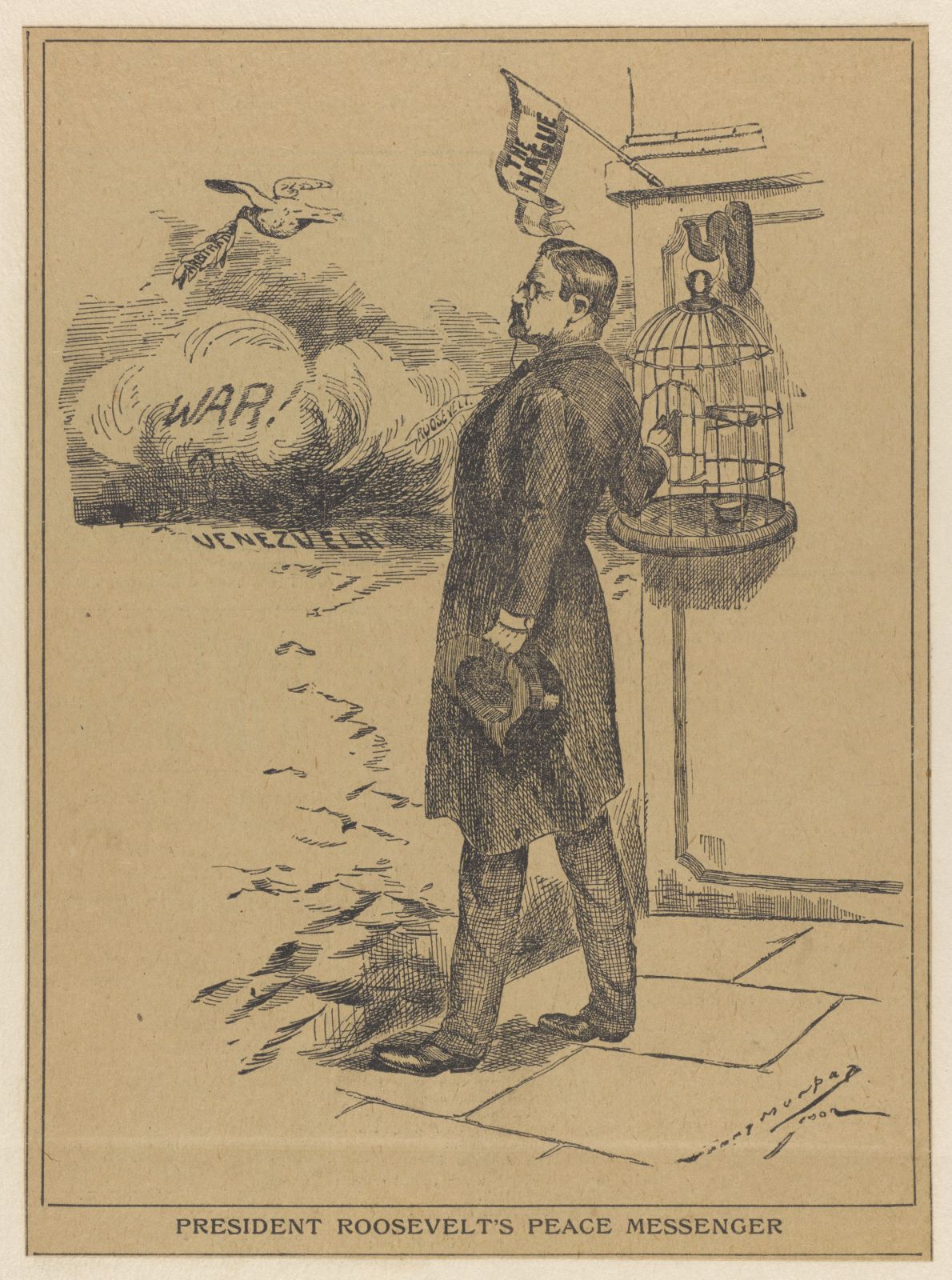TR Encyclopedia
Foreign Affairs
As president, Theodore Roosevelt won the Nobel Peace Prize for his role in settling the Russo-Japanese War, but his interest in foreign policy began long before his presidency. Learn more about the diplomatic initiatives of Roosevelt’s administration.

Alaska Border Dispute
The Alaska Border Dispute saw tensions grow between the United States on one side, and Canada and Great Britain on the other, as the nations sought to define the boundaries of the Alaskan panhandle region.
Gentlemen’s Agreement
The Gentlemen’s Agreement was an informal agreement between Japan and the United States to limit immigration from Japan in return for less discriminatory policies and restrictions on immigrants already present in the country.
Gummeré, Samuel Réne
Samuel Réne Gummeré (1849-1920) served as the American consul general in Morocco from 1898 until 1905 when he was appointed the first United States minister to Morocco by President Theodore Roosevelt.
Hay-Herrán Treaty
The United States Senate ratified the Hay-Herrán Treaty on March 17, 1903.
Hay-Pauncefote Treaty
President William McKinley instructed Secretary of State John Hay to renegotiate the Clayton-Bulwer Treaty (1850) with the British ambassador, Lord Julian Pauncefote. These discussions eventually resulted in the Hay-Pauncefote Treaty, which allowed the United States to build, fortify, and control an isthmian canal as long as British vessels were granted access to the canal on equal terms.
Panama Canal Treaty
The Panama Canal was a result of many treaties and international negotiations, with the final treaty coming about after the Panamanian revolution.
Perdicaris Incident
The Perdicaris Incident remains well-known for the wording of Hay’s telegram. It is also a clear example of Roosevelt’s “big stick” diplomacy.
Platt Amendment
The Platt Amendment established the framework for U.S.-Cuban relations between 1901 and 1934. It was devised by a congressional subcommittee chaired by Senator Orville Platt of Connecticut. The amendment limited Cuba’s treaty-making powers, restricted Cuba’s foreign debts, gave the U.S. the right to intervene to preserve Cuban independence, allowed a U.S. naval base at Guantánamo Bay, and initiated sanitation and health care efforts designed to lure U.S. investors to the island.
Roosevelt Corollary
In his annual message to Congress on December 6, 1904, President Theodore Roosevelt made a significant addition to the Monroe Doctrine affecting America’s foreign policy.
Root-Takahira Agreement
President Theodore Roosevelt worked to improve diplomatic relations between the United States and the Empire of Japan. Two important steps in this direction were made by his helping to end the Russo-Japanese War (1904-1905) and his arranging to have the Great White Fleet visit Tokyo (October 1908). The Root-Takahira Agreement (November 1908) was a third.
The Great War
The Great War engulfed first Europe and then the world, and was a topic of many of Theodore Roosevelt’s writings and speeches in his later life.
Treaty of Portsmouth
The Treaty of Portsmouth, signed on September 5, 1905, officially concluded the Russo-Japanese War of 1904-1905. President Theodore Roosevelt won the Nobel Peace Prize for the role he played in the negotiations that ended the conflict.
Venezuela Debt Crisis
The Venezuela debt crisis began in 1901 when Cipriano Castro, Venezuela’s president, defaulted on millions of dollars in bonds owed to European nations.